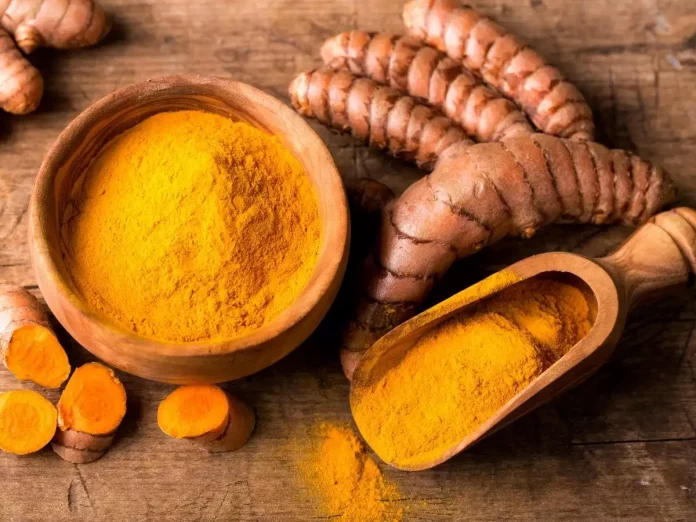Turmeric is a spice that has the potential to be the most effective nutritional supplement currently available. Turmeric has been found to provide considerable health benefits for both the body and the brain in multiple high-quality studies. Many of these benefits are attributed to curcumin, the main active component. Continue reading to discover more about the health benefits of turmeric and curcumin. ALSO READ : HEALTHY MORNING DRINK
What are turmeric and curcumin?
Curry’s yellow hue comes from the spice turmeric. It has been used as a spice and a medicinal herb in India for thousands of years. Science has recently begun to support traditional assertions that turmeric contains chemicals that have therapeutic qualities. ALSO READ : TURMERIC : MAGIC SPICE
Curcuminoids are the name for these chemicals. Curcumin is the most crucial.
Turmeric’s major active component is curcumin. It has potent anti-inflammatory properties as well as being a potent antioxidant.
The top evidence-based health benefits of turmeric and curcumin are listed below.
1. Turmeric includes bioactive chemicals that have anti-inflammatory and anti-cancer activities.
Turmeric, on the other hand, does not have a high curcumin level. By weight, it amounts to roughly 3%. The majority of studies on this herb use turmeric extracts that are mostly curcumin, with daily doses typically exceeding 1 gramme. It would be quite difficult to achieve these levels only by the use of turmeric as a spice.
It’s for this reason that some people prefer to take supplements. Curcumin, on the other hand, is poorly absorbed into the circulation. Curcumin’s bioavailability (the rate at which your body absorbs a substance) must improve in order to get its full benefits.
Consuming it with black pepper, which contains piperine, is beneficial. Piperine is a natural chemical that boosts curcumin absorption.
2. Curcumin is an anti-inflammatory chemical found in nature.
The importance of inflammation cannot be overstated. It aids in the battle against foreign invaders and aids in the restoration of bodily damage.
While acute, short-term inflammation is good, it can become a problem if it becomes persistent and assaults your own tissues.
Chronic low-level inflammation is now thought to play a role in a variety of health disorders and illnesses, according to scientists. These include the following:
- illness of the heart
- Cancer
- metabolic syndrome is a term used to describe
- Alzheimer’s disease is a kind of dementia
- many types of degenerative diseases
As a result, anything that might help reduce chronic inflammation has the potential to help prevent and treat these diseases.
3. Turmeric can boost the body’s antioxidant capability.
One of the factors behind ageing and many illnesses is oxidative damage. Free radicals, extremely reactive molecules with unpaired electrons, are involved. Free radicals are known to react with essential chemical compounds such fatty acids, proteins, and DNA.
Antioxidants protect your body from free radicals, which is why they are so important.
Curcumin is a powerful antioxidant with a molecular composition that may destroy free radicals. Curcumin may also inhibit the activity of free radicals while stimulating the action of other antioxidants, according to animal and cellular studies. More human clinical trials are needed to validate these advantages.
4. Curcumin can increase the amount of brain-derived neurotrophic factor (BDNF).
Neurons were thought to be unable to divide and proliferate during early infancy before scientists had a better knowledge of them. They now know, however, that this is not the case.
Neurons have the ability to make new connections, and they can expand and grow in quantity in some parts of the brain.
Brain-derived neurotrophic factor is one of the key drivers of this process (BDNF). This gene is involved in the production of a protein that helps neurons live longer.
The BDNF protein is present in parts of the brain that control eating, drinking, and body weight, and it plays a function in memory and learning.
5. Curcumin has been shown to reduce the risk of heart disease.
Heart disease is the leading cause of mortality worldwide. Researchers have been studying it for decades and have learnt a great deal about why it occurs. Heart disease is, unsurprisingly, quite intricate, and a variety of factors play a role in its development.
Curcumin may aid in the reversal of a number of phases in the heart disease process.
Curcumin’s key advantage in terms of heart disease is that it improves the function of the endothelium, which lines your blood vessels.
Endothelial dysfunction is a key cause of cardiovascular disease. When your endothelium is unable to manage blood pressure, blood clotting, and other variables, this is known as hypertension. Curcumin has been linked to improved heart health in several studies.
6. Turmeric may aid in cancer prevention.
Cancer is a disorder in which cells grow out of control. Curcumin supplements appear to have an effect on many different types of cancer.
Curcumin has been explored as a cancer therapy herb and has been discovered to inhibit cancer growth and development.
According to studies, it can:
- assist in the demise of malignant cells
- Angiogenesis should be reduced (growth of new blood vessels in tumors)
- decrease metastasis (spread of cancer)
It is yet to be determined if high-dose curcumin — preferably with an absorption enhancer like piperine — can help cure cancer in humans.




